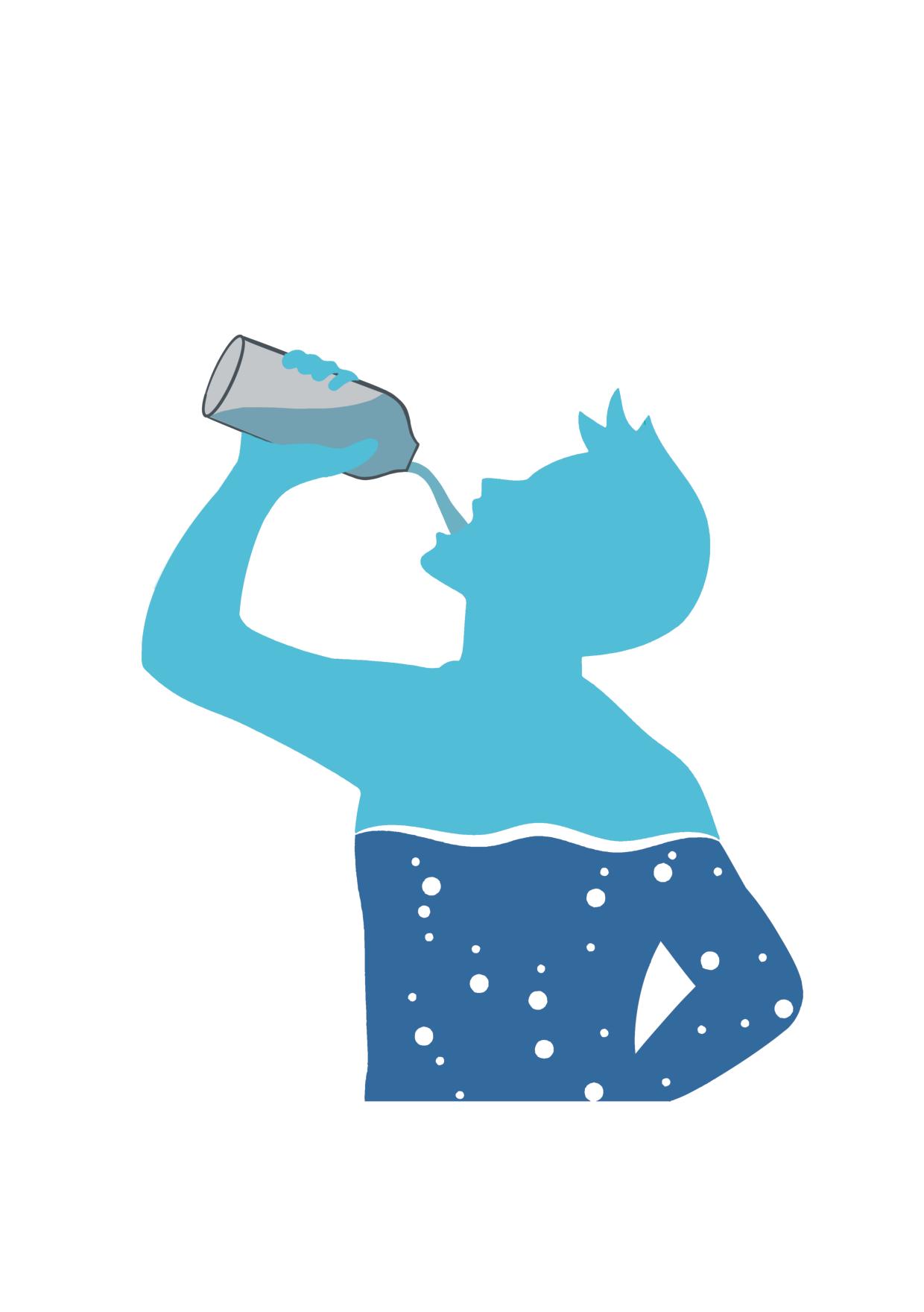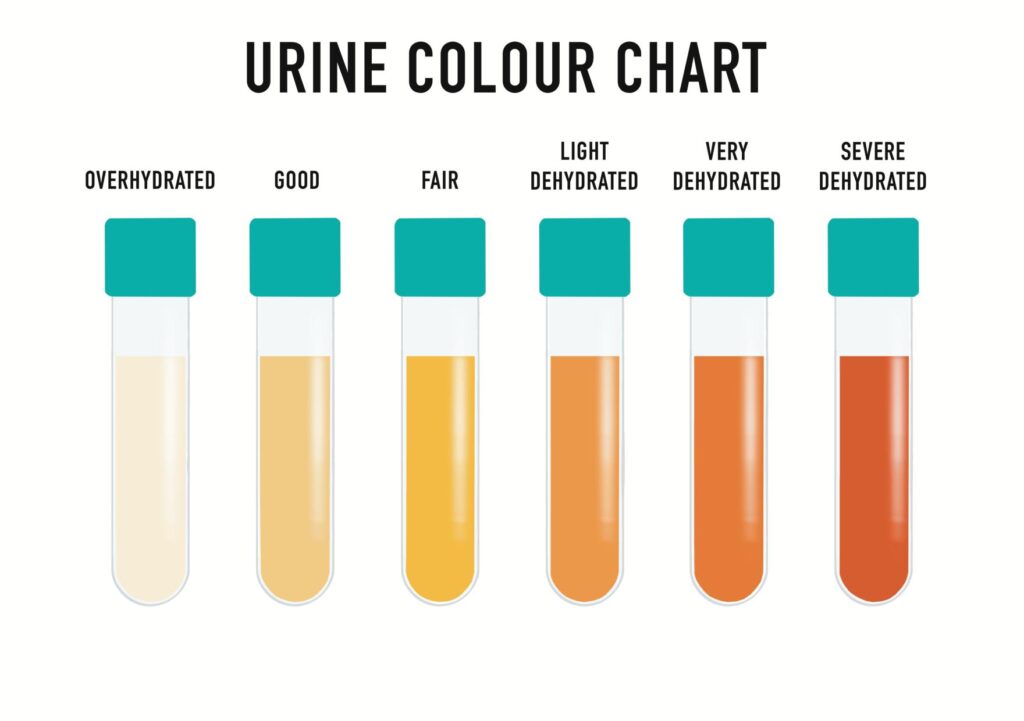Stay Hydrated !
In terms of performance, there is no acceptable level of dehydration.
Even losing 1% of your body’s water can result in a performance decrease of up to 10%!
Dehydration = a reduction in total body water due to fluid loss. Optimal hydration is essential for the body to function properly. During physical activity, you can lose up to 5 liters of body fluids due to sweating, as well as through breathing, skin, and body cooling. Scientific studies have shown that a 3-4% loss of total body fluids leads to a 30% reduction in strength and an 8% decrease in speed and muscle explosiveness!

The more you sweat, the more you need to drink. Fluid intake increases with the intensity of exercise and the temperature of the environment. In hot conditions and during high performance, maintaining optimal hydration can be challenging, so don’t leave it to chance!
Beware! Sweat is not just water! Sweating also leads to the loss of minerals like sodium, calcium, magnesium, chloride, and many others, so plain water is often not enough—you need to replenish minerals and glucose as well.
There’s a simple method to check if your body is sufficiently hydrated—by monitoring the color of your urine.

We should drink before, during, and after training. There are three phases of fluid intake:
- Prehydration (before training): If you don’t ensure adequate fluid intake before training, it’s too late to start drinking during it! Your hydration should consist mainly of plain water and mineral water. With sugary drinks, you need to keep in mind that they often contain a significant amount of energy, so they should make up a smaller portion of your fluid intake.
- Hydration (during activity): The recommended fluid intake during training is approximately 100 ml of water or a sports drink at a temperature of about 10°C every 15 minutes. However, as the temperature and intensity of the exercise increase, the required amount of fluids you need to replenish also rises.
- Rehydration (after activity): Replenishing fluids after exercise is one of the most important phases of fluid recovery, as well as energy recovery. The ideal solution is to consume sports drinks containing 4% to 10% of carbohydrates (i.e., 4-10 g/100 ml of drink), which also include minerals (electrolytes), especially sodium, as its loss is the greatest. You don’t need to worry, manufacturers provide precise dosages.
A suitable alternative can also be fruit juices diluted with water.
Sports Drinks „Electrolyte Drinks“
In addition to replenishing fluids, energy, and minerals, such drinks are absorbed into the bloodstream faster than water alone. These drinks should be consumed immediately after physical activity or even during it.
They are sold either as ready-made drinks or as liquid or powder concentrates that you dilute with water. Many commercial sports drinks contain substances that are not necessary for hydration—these are mostly marketing additives, but that’s a topic for another time😊.
From an economic standpoint, it’s always more cost-effective to mix your electrolyte drinks yourself. Tablets are also often used to replenish minerals.
When is it important to consider electrolyte intake?
• before exercising in a hot environment
• to specifically replenish significant sweat loss during prolonged sweating
• for rehydration when fluid losses are greater
• when the recovery time is short
Here are a few simple tips for proper hydration:
- start your day with a great „ritual“—a glass of plain water
- always keep your favorite water bottle with you and refill it 3–5 times a day
- after training or a match, try to drink an electrolyte drink or another drink containing glucose and minerals, ideally during the cool-down phase
- when you feel thirsty, it usually means you’re already dehydrated
Based on scientific evidence and recommendations.
